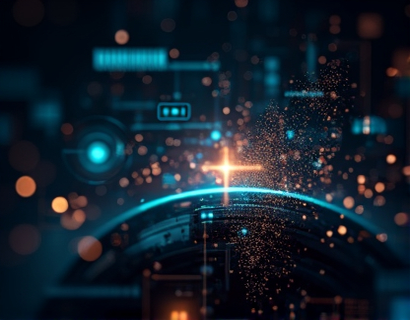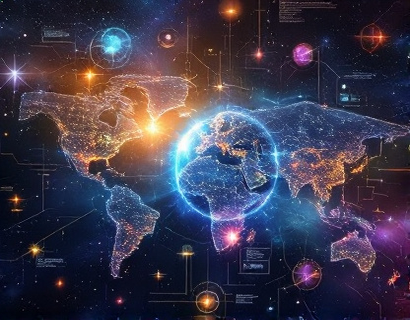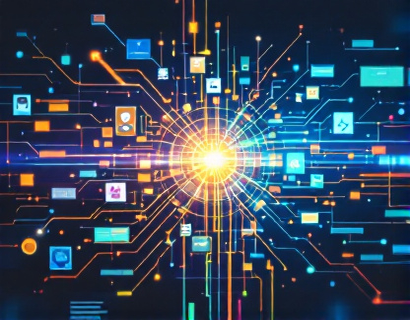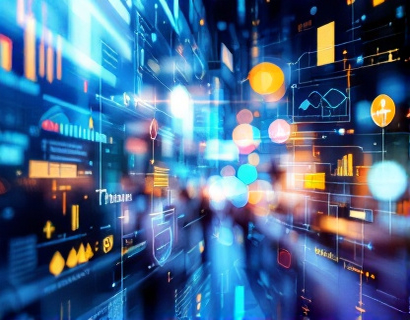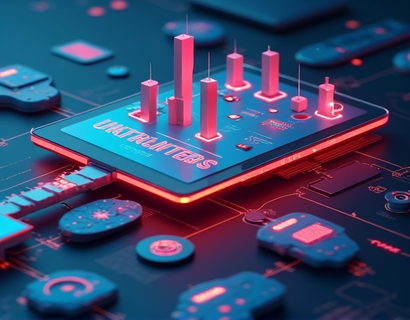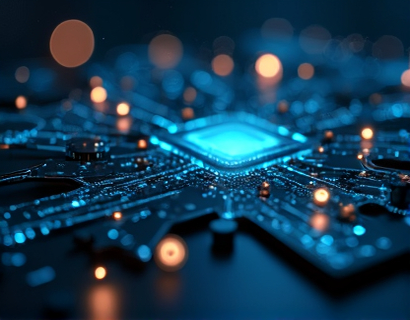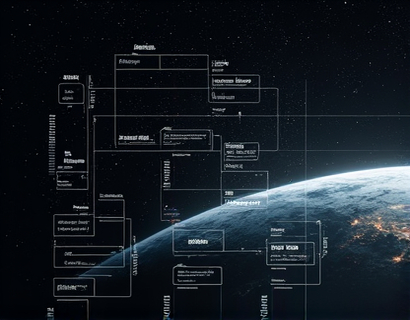Transforming Digital Experiences: The Synergy of AI and Crypto
The intersection of artificial intelligence and cryptocurrency is giving rise to a new era of digital innovation, where the traditional boundaries of technology are being redefined. This synergy is not just about combining two powerful forces; it's about creating a transformative ecosystem that enhances user interactions and financial empowerment. As we delve into this topic, we will explore how innovative applications are leveraging the strengths of both AI and crypto to offer unprecedented digital experiences.
The foundation of this transformation lies in the unique properties of blockchain technology, which underpins cryptocurrency. Blockchain's decentralized, transparent, and secure nature provides an ideal platform for AI applications to operate without the constraints of centralized control. This combination allows for the creation of decentralized applications (dApps) that can process and analyze vast amounts of data in real-time, leading to more intelligent and responsive user experiences.
Enhancing Financial Empowerment
One of the most significant impacts of the AI and crypto synergy is in the realm of financial empowerment. Traditional financial systems often exclude a large portion of the global population due to high barriers to entry and complex regulatory environments. Cryptocurrency, with its decentralized nature, offers a more inclusive alternative. When AI is integrated into this framework, it can further democratize financial services.
AI-driven financial tools can analyze market trends, predict price movements, and provide personalized investment advice, making it easier for individuals to make informed decisions. Smart contracts, powered by AI, can automate and enforce contractual obligations without the need for intermediaries, reducing costs and increasing efficiency. This not only empowers individuals but also fosters a more equitable financial landscape.
Innovative User Interactions
The integration of AI and crypto is also revolutionizing user interactions in digital spaces. Traditional user interfaces are being replaced by more intuitive and adaptive systems. AI algorithms can analyze user behavior and preferences to tailor experiences, ensuring that each user interacts with the application in the most efficient and enjoyable way possible.
For instance, chatbots powered by natural language processing (NLP) can provide 24/7 customer support, answering queries and guiding users through complex processes with human-like conversational skills. These chatbots can also handle transactions, offering a seamless and secure experience. The use of AI in fraud detection further enhances security, ensuring that users can transact with confidence.
Decentralized Identity Management
Another area where AI and crypto are making waves is in decentralized identity management. Traditional identity systems are centralized and vulnerable to breaches, leading to significant privacy concerns. Blockchain-based identity solutions, enhanced by AI, offer a more secure and user-controlled approach.
AI algorithms can help verify identities through biometric data and behavioral patterns, reducing the risk of fraud. Users have full control over their identity data, deciding who can access it and for what purpose. This not only enhances privacy but also gives users more power in managing their digital personas.
Enhancing Supply Chain Transparency
The supply chain industry stands to benefit greatly from the AI and crypto synergy. Blockchain provides a transparent and immutable ledger for tracking goods from production to delivery. AI can analyze this data to optimize logistics, predict demand, and identify bottlenecks in real-time.
Smart contracts can automate payments and ensure compliance with contractual terms, reducing delays and disputes. This level of transparency and efficiency not only improves operational performance but also builds trust among all stakeholders involved. Consumers can trace the origin and journey of products, ensuring authenticity and ethical sourcing.
Gaming and Virtual Economies
The gaming industry is another sector where AI and crypto are creating innovative experiences. Blockchain-based gaming platforms allow for true ownership of in-game assets, with NFTs (non-fungible tokens) representing unique items. AI can enhance gameplay by creating more realistic and adaptive non-playable characters (NPCs) and dynamic environments.
In-game economies can be more stable and fair, with AI managing supply and demand to prevent inflation and ensure a balanced experience for all players. Cryptocurrency transactions within games are secure and instant, removing the need for intermediaries and reducing transaction fees.
Healthcare and AI-Driven Medical Records
In the healthcare sector, the combination of AI and crypto is paving the way for more secure and efficient medical record management. Blockchain can store patient data in a decentralized and encrypted manner, ensuring privacy and security. AI can analyze this data to provide personalized health insights and predictive analytics for early disease detection.
Patients can control access to their medical records, sharing relevant information with healthcare providers seamlessly. This not only improves the quality of care but also empowers patients to take a more active role in their health management. AI-driven chatbots can assist in appointment scheduling, medication reminders, and general health advice, enhancing the overall patient experience.
Challenges and Considerations
While the potential of AI and crypto is vast, there are challenges that need to be addressed. Regulatory uncertainty remains a significant hurdle, as governments worldwide are still grappling with how to classify and regulate these technologies. Ensuring compliance while fostering innovation is a delicate balance that requires collaboration between stakeholders.
Technical challenges, such as scalability and interoperability, also need to be overcome. The blockchain ecosystem must evolve to handle the increasing demand for transactions and data processing. Additionally, user education is crucial to ensure that individuals can fully leverage the benefits of these technologies without falling prey to scams or misinformation.
Future Prospects
Looking ahead, the synergy between AI and crypto is poised to drive even more groundbreaking developments. The rise of Web 3.0, a decentralized internet powered by blockchain, will further integrate AI to create a more intelligent and user-centric web. Decentralized finance (DeFi) platforms will continue to expand, offering a wide range of financial services without traditional banking constraints.
AI-powered virtual assistants and personal assistants will become more sophisticated, integrating seamlessly with various aspects of daily life. The convergence of these technologies will not only enhance digital experiences but also redefine how we interact with technology and each other.
In conclusion, the combination of AI and crypto is transforming digital experiences in profound ways. From financial empowerment and user interactions to supply chain transparency and healthcare, the applications are diverse and impactful. As this ecosystem continues to evolve, it holds the promise of a more inclusive, secure, and intelligent digital world.









